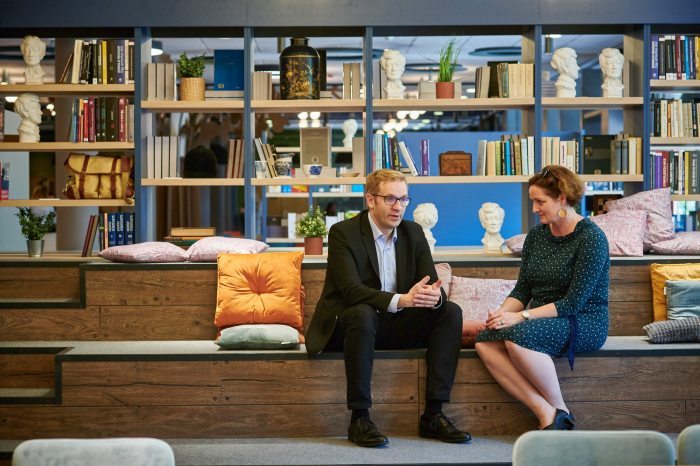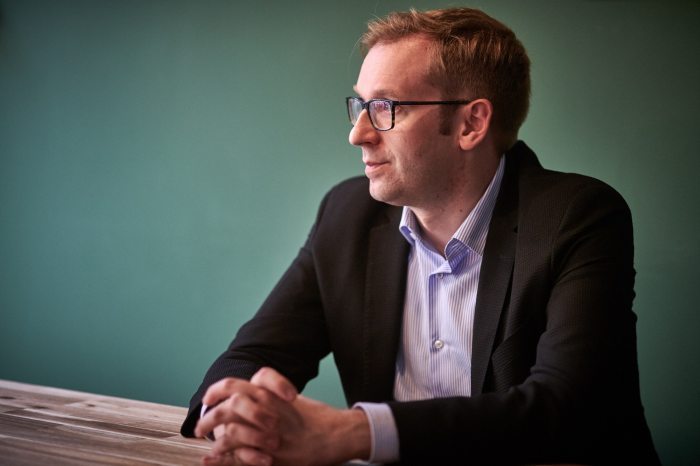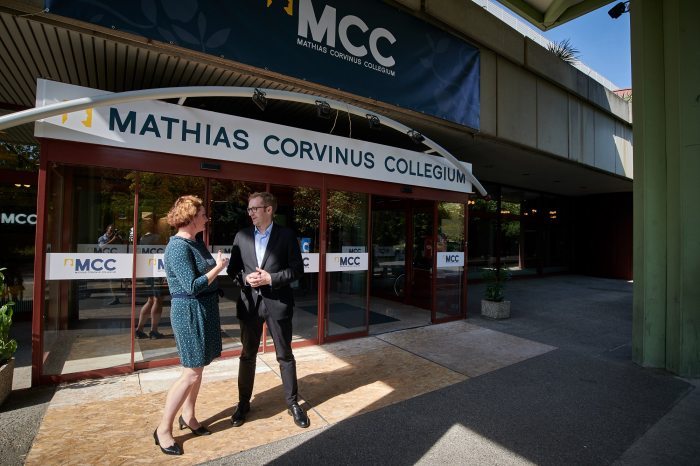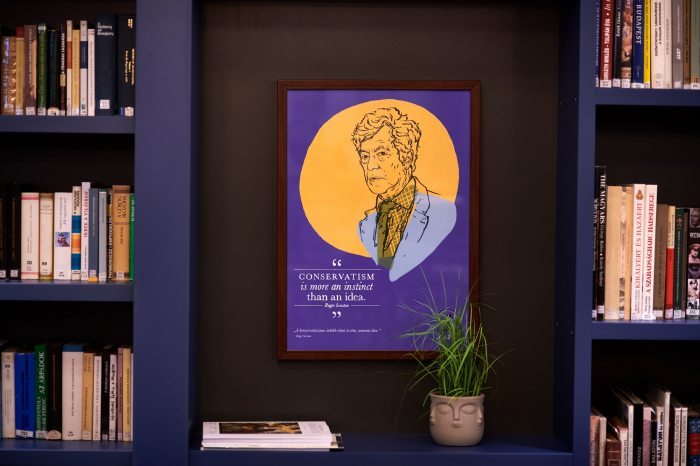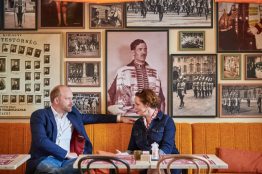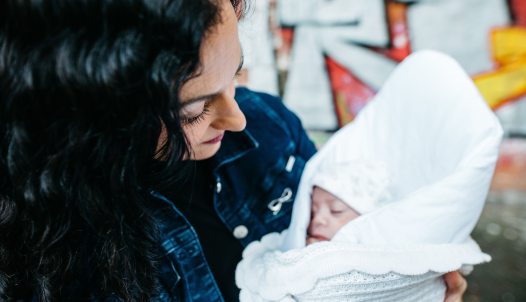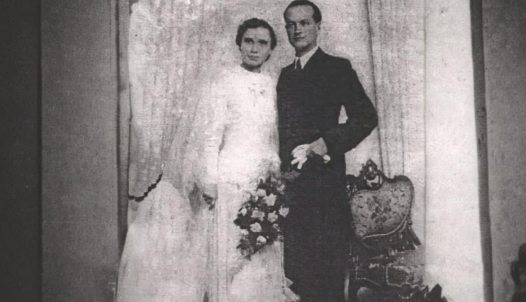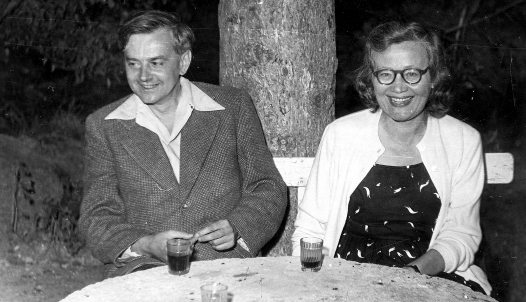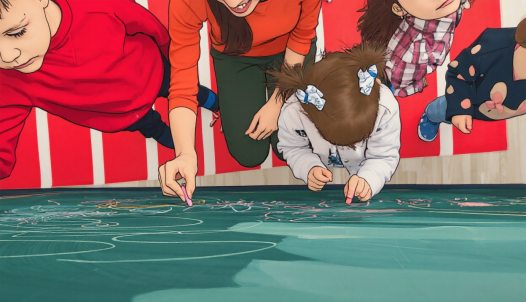You can learn outside the four walls, too – An interview with Dr. Zoltán Szalai, Director general of Mathias Corvinus Collegium
One of the horrors of every parent is that their child would "mix with the wrong crowd", whatever that may mean, and we often find that we can't always offer the new generation a sufficiently exciting intellectual challenge. As the mother of a college student, a high school student, and a primary school student, I have often wondered what kind of programs I could direct my intelligent and independent children towards that are meaningful, and provide community as well as spiritual and intellectual enrichment. Among our acquaintances, there were parents who were not too worried about the above because their child had joined a Mathias Corvinus Collegium program. So it seems that the MCC people know something, and I wondered what that is.
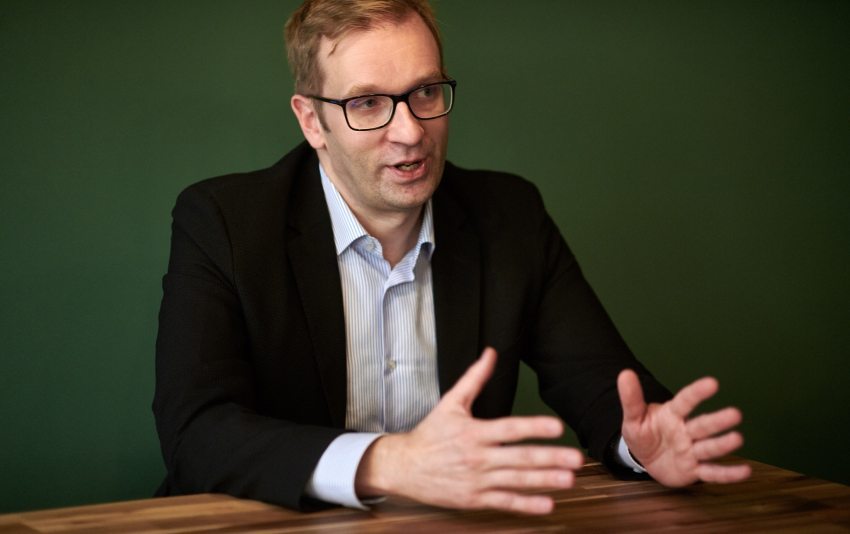
Dr. Zoltán Szalai, Director General of MCC, talked about the beginnings. The MCC was founded in 1996 as a family foundation with a few students in an apartment - but even then with grandiose plans and dreams. In 2001, the government of the time found the education program worthy of support, so the foundation was able to move into the building of the former workers' militia’s headquarters on Somlói Road. As MCC has always envisioned its educational work in the whole Carpathian Basin, the next center was opened in Kolozsvár (Cluj Napoca) in 2013. Then came the larger cities of rural Hungary for young students, Kecskemét, Szolnok, Veszprém, Pécs, Miskolc, and then Beregszász (Berehovo) in Transcarpathia. As a key milestone of growth, last year the foundation was established as a public interest trust, which can be run by dividends from MOL and Richter shares. Currently, they are working with 3,700 students in 23 locations in the Carpathian Basin, but within a few years, they want to reach more than 10,000 students in 35 locations, providing them with knowledge, experience, and community that goes beyond the scope of public education but is important and necessary for a conscious and responsible life.
Szalai describes the Foundation's strategic goals as follows: "The MCC's mission is to support the most talented students through a complex education that focuses on skills, professional knowledge, emotional development and relationships, from the age of 10 to the end of university and beyond. We want this kind of knowledge, which has been available in Budapest for a long time, to be of even higher quality, with full-time, excellent teachers, the best foreign visiting professors, available throughout the whole territory of historic Hungary, for anyone who wants to get more out of themselves than they can comfortably get in public education."
The core activity of Mathias Corvinus Collegium is therefore not just accommodation. Providing dormitory accommodation serves to build community, making it easier for students to participate in afternoon and evening courses and leisure activities without having to travel home. If they spend more time together, and the MCC offers useful activities, the community will develop more strongly in the dormitory setting.
The focus is on education based on talent promotion.
Courses are already being offered to middle- and high school students that complement traditional school education: languages, interdisciplinary areas such as music and mathematics or robotics, money management, internet use, health awareness and health culture, environmental protection, including the concept of creation protection - these are the areas that are only touched on in public education but which can capture children's interest from an early age. Or some areas are regularly left out of the public school curriculum, such as the last few decades of twentieth-century history, which history teachers rarely get to, and even then in vague quality. In addition to professional courses, there are skills development activities, a wide range of summer and winter camps, and many social experiences for young people who take part in the program free of charge. High school students are also helped to choose their career paths, so they would be able to imagine what they will study, for example, in international relations, or what they need to be prepared for if they want to become diplomats.
"It's a challenge, not only for us but for the whole world today, to combine the in-person and online possibilities " – Zoltán Szalai answers my question about the way forward. "This has been very important in the pandemic period but we also want to make it possible for students from Beregszász (Berehovo) or Sepsiszentgyörgy (Sfantu Gheorghe) to join a training course in Budapest. It would be also important that students who have been awarded scholarships to study abroad were able to join the work of the MCC during their stay in other countries. But I have just been told by the head of an American university that they too are facing the challenge of making it possible to complete a semester at their university from abroad, because thus they would be able to offer cheaper courses to students from the Far East, for example. Overall, I believe in in-person education, but as long as it makes sense, we need to develop our online learning opportunities."
Years ago, renowned professors used to come to give courses or lectures to students but today the MCC is staffed by renowned professors and researchers such as Zoltán Cséfalvay, Borisz Kálnoky, Zoltán Kovács, Sándor Gallai, or István Varga.
Distinguished experts who already conduct research at the MCC publish from here. "Much of the knowledge we teach is already produced here," says the director proudly. "Research institutes have been set up under the auspices of the MCC in areas such as migration research, climate and youth research, Hungarian-German relations, and the best international researchers and academics are involved in these, and there are always 15 to 20 foreign visiting professors at the MCC. It's also important that our students spend time abroad, gain experience, learn from the best - and then come home and use what they've learned. Fortunately, the opportunities here are getting better now, and many domestic companies and the public sector can offer the kind of perspective that a foreign country can."
We also talk about nurturing values. Zoltán Szalai is a fan of debates, as he says, after an exciting lecture, a heated debate with different arguments and opinions develops between students and invited speakers. "The important thing is for young people to listen to intelligent, good debates, where a range of opinions and interpretations are put forward, and to see that a well-prepared person with smart arguments is more authentic. This is appreciated by the young generation. The aim is to familiarise them with the most diverse segments of the world, the most important workshops of thinking, so that they do not receive one-sided, or didactic knowledge or approach. In Western universities today, a kind of neo-Marxist approach, the so-called woke culture, dominates education. This also defines the thinking of many university teachers in Hungary. Part of the university intelligentsia has taken on a kind of Western mainstream robe, but behind it, the aggressiveness of Eastern European, twentieth-century communism, which excludes all other ways of thinking and values, is still clearly visible. We want MCC students to be able to make up their minds on an issue, regardless of school, values, or upbringing. At the same time, MCC is characterized by basic patriotism, a healthy patriotism, and we try to educate young intellectuals to love their country and their nation, to take responsibility for the community, and to think about community as a value. That is why it is important for them to feel themselves in one community with the students of the Hungarian centers beyond the borders. In addition to Kolozsvár (Cluj-Napoca) and Beregszász (Berehovo), our centres in Nagyvárad (Oradea), Szatmárnémeti (Satu Mare), Marosvásárhely (Târgu Mures), Székelyudvarhely (Odorheiu Secuiesc), Csíkszereda (Miercurea Ciuc), and Arad (Arad) have also opened. And the aim is to have MCC training in Vojvodina, in the Felvidék (present-day Slovakia) and even in Vienna."
The Director-General added that the old, often disused, and extremely dilapidated buildings, which are part of the national architectural heritage, will be given a meaningful function again in the MCC's activities, becoming residential and talent management centers.
They will be open not only to young learners but also to their parents, teachers, and the city community, as there are and will be publicly accessible community programs in every center. The Foundation will renovate, modernize and maintain these prestigious buildings with a rich history, rather than building lightweight campuses on the outskirts of the city as greenfield projects. Thus, the city also benefits from the MCC's activities, with the renovation of the Hotel Avas in Miskolc, or the Grand Hotel Aranybika in Debrecen, or the takeover of certain buildings such as the Officers’ Casino in Pécs, the Béla Bartók Cultural Center in Szeged, the old town hall in Zalaegerszeg or the Girls' dormitory in Szombathely. In Budapest, the extremely poorly maintained, energy-wasting, and historically-loaded center will be replaced by a completely new building with a garden that will also serve as a public park. The MCC is temporarily using the former Flamenco Hotel building, where we are having this conversation now. We are chatting in the Scruton Café, which has been transformed into a dynamic community space, displaying the personal objects and books of conservative thinker Roger Scruton, considered by many to be the most important contemporary British philosopher.
"Scruton visited our country several times, we knew and loved him personally, and he had great respect for Hungarians. He did a lot for British-Hungarian friendship, which is why the idea of creating a community space in his name was born. We have an excellent relationship with his widow, who also gave part of his heritage to the Hungarians. This is how Scruton's desk, chair, bag, some of his books, a large part of his paintings, his saddle, and riding crop were moved into the communal space. I believe that these objects also inspire students to not only spend their time studying within the four walls but in addition to their textbooks to be active in the community, to make time for a varied and meaningful leisure time spent in the community. Not to be houseplants, as we say. Finding my place in the world is a significant and important task of the young, finding your place and your role in the world, and the way you can become a responsible member of the community to which you belong. Sometimes we can draw more out of them by taking them to Dunaszerdahely (Dunajská Streda) for a DAC (football) game than by teaching them more Latin between the four walls. MCC is strong in helping to build good human bonds, close friendships, and professional relationships in the most critical years. We are also an ally to parents in this."
Képmás magazine is launching a new series called Public Treasure, in which Kata Molnár-Bánffy, the publisher of Képmás, talks to dedicated people whose successful work can be of interest to many, and is a Public Treasure, as the title of the series suggests: a common issue, something we want to take care of.
